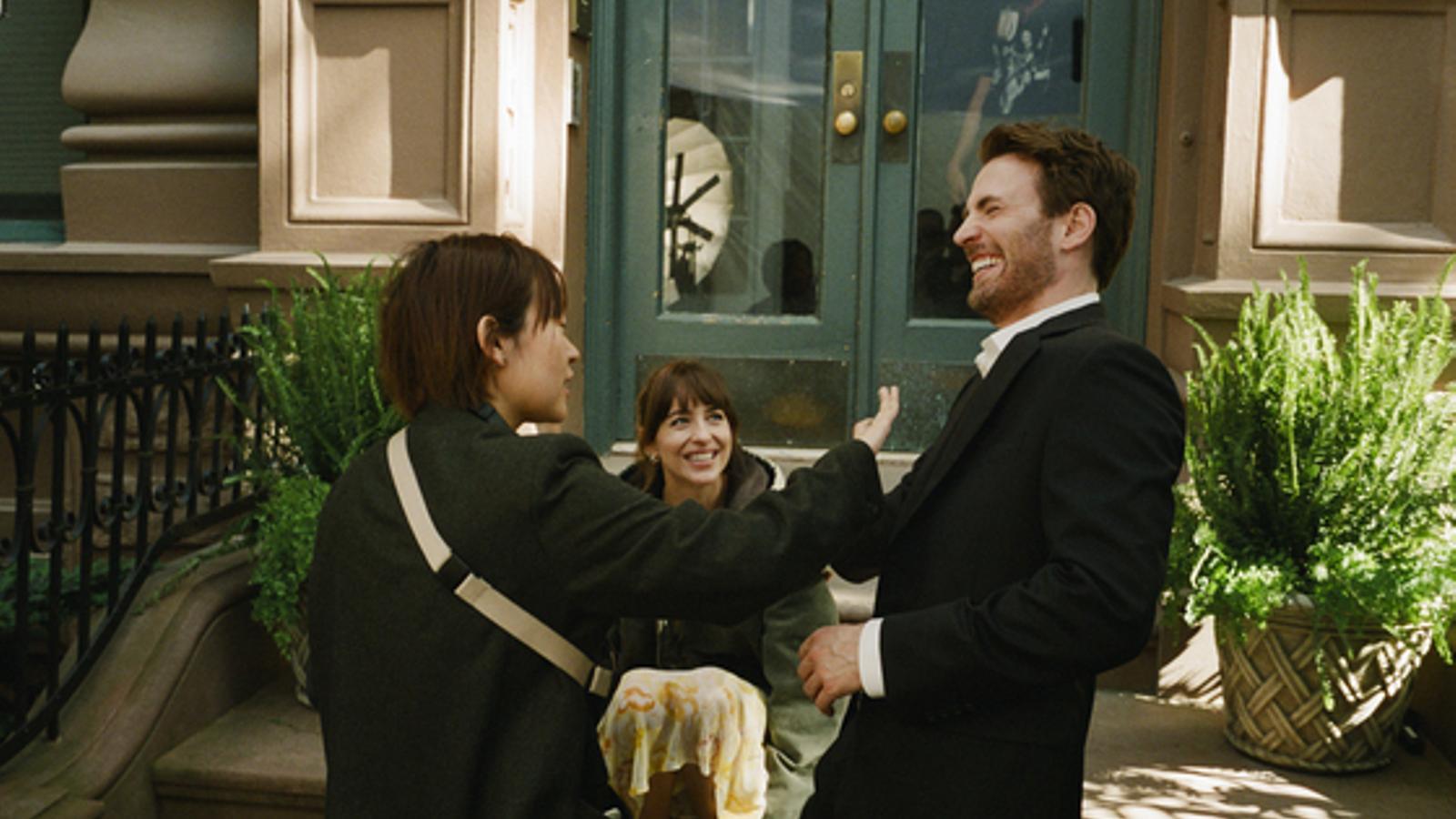Celine Song: "Capitalism has corrupted the way we love."
The director premieres 'Materialists' with Pedro Pascal, Dakota Johnson, and Chris Evans.

BarcelonaApparently Materialists [Materialists], Celine Song's film starring Pedro Pascal, Dakota Johnson, and Chris Evans, which opens in theaters on August 14, tells the story of a love triangle between three very attractive people from different social classes. The protagonist, Lucy (Dakota Johnson), works at a dating agency and is torn between improving her financially and socially through marriage to Harry (Pedro Pascal) or staying with her childhood sweetheart, John (Chris Evans), who is eking out a living in a shared apartment. In Lucy's world, the American dream has been definitively destroyed: the only way to advance financially or achieve financial security is no longer through merit, but through marriage.
Song's perspective is optimistic, but not naive: she uses love to talk about the damage that capitalism has done to the search for a partner. "I wanted to talk about how capitalism has completely corrupted not only the way we love, but also how we see ourselves as people," she says in a video interview from the Atlántida festival in Mallorca. The filmmaker, who was born in Seoul and emigrated to Canada with her parents when she was 12, worked for six months at a dating agency in New York, and from that experience, the film was born. There isn't much variety in the requests Lucy's clients make. They ask that the men earn a lot of money, have hair, and be over 1.80 meters tall (an important detail in the film). They don't hold back when it comes to Lucy; they also specify their race. The men ask that the women be fit and under 30, even though the men are approaching 50.
The filmmaker places special emphasis on where and how the three protagonists live. When Lucy enters Harry's apartment to spend the night, she isn't swept away by his caresses and kisses, but is dazzled by the apartment's size and furnishings. "I think I'm very concerned about the way we're asked to become objects of value, as if we were commodities," says the filmmaker. In fact, the value we place on ourselves, whether physical or financial, hovers throughout the film. One of Lucy's clients, Sophie, is assaulted during one of their appointments. "What happens to Sophie is a consequence of this process of dehumanization, and all dehumanization implies a certain violence. What Henry does to himself is also violent, the fruit of self-hatred, born of objectification. When you think only in terms of value, and not as a human being, that's when you can become yourself."
Will love set us free?
There is no cynicism in Song's concept of love. The director of Materialists She's had many conversations about love and fielded requests, like Lucy's, when she worked at a dating agency, but she met her husband, screenwriter Justin Kuritzkes, at an artist residency when she was 24. "Love is a great ancient mystery, a total miracle when it happens," she says. When it hits you, it's uncontrollable: "As modern people, we think we can control everything and turn it into numbers and algorithms, but love isn't some numerical formula, it's something incredible," she adds.
A Past lives, In her Oscar-nominated film, Song beautifully explained an intense love story about what could have been but wasn't. The filmmaker definitely wants love in cinema, because it allows her to talk about what it means to be human. "Love belongs in cinema because it's the only space where we are all equal. Much of the world is monopolized and controlled by the rich; wealth is the great drug of our times," she argues. The rich, she says, can have the best of everything because they can afford it. "In love, we can still be free. There is still hope. The film talks about dating, romantic love, and marriage, but also about many forms of love. I'm not religious, but love is sacred and divine, and it's beyond any economic system. Having money or a bigger house doesn't make you luckier," she asserts.
